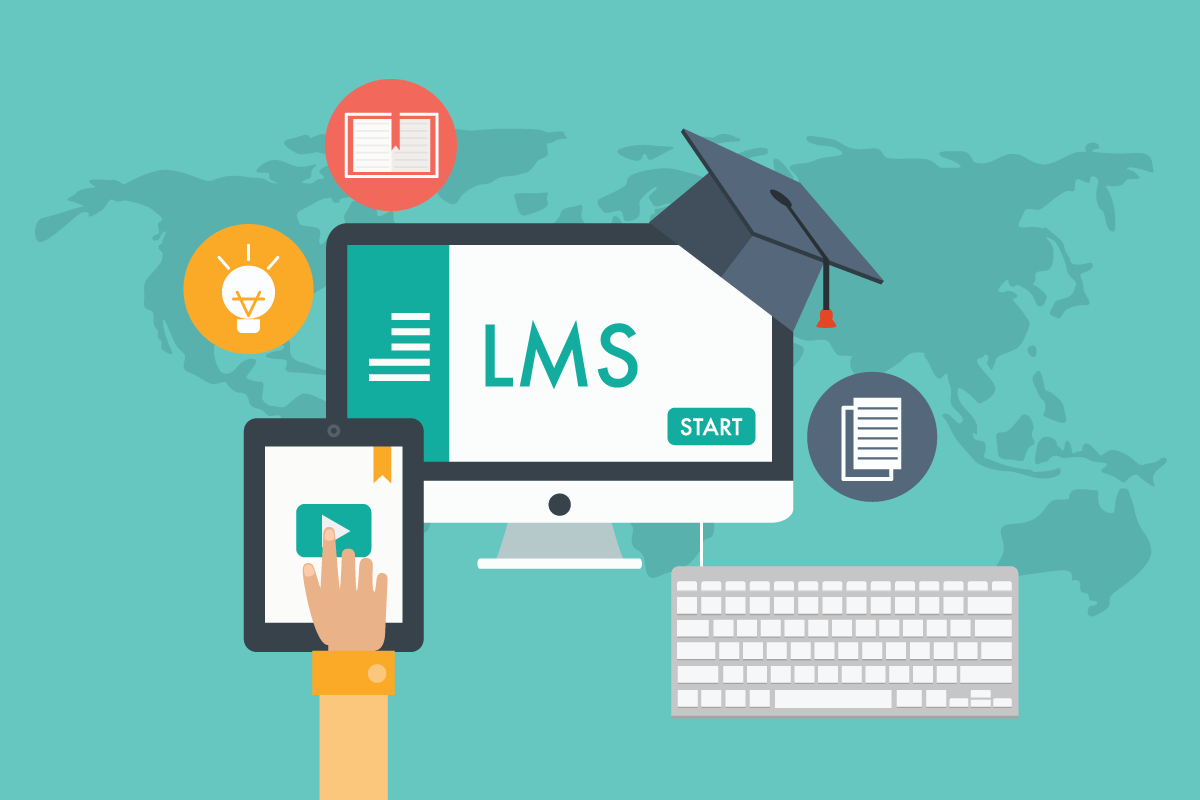Introduction
In recent years, the artificial intelligence (AI) field has made significant strides in transforming many industries, and education is no exception. An LMS is a software application that provides the necessary tools for creating, managing, and delivering educational content, along with tracking and reporting learners’ progress.
By leveraging machine learning, natural language processing, and other AI technologies, AI-integrated Learning management systems are changing the future of the education sector, taking the capabilities of traditional LMSs to a whole new level.
LMS providers with AI-enhanced capabilities can tailor educational experiences to each student’s unique requirements and preferences. This helps boost evaluation and feedback, and teachers can offer more efficient management.
According to the Markets and Markets study, the global market for AI in education will reach $3,683.5 million in 2023. AI and data science technologies better the eLearning process. They assist your LMS to meet the organisations’ learning and training requirements by providing your learning management system (LMS) software with advanced capabilities.
Companies are becoming increasingly aware of the benefits of harnessing AI tools and technologies like Data Analytics, Machine Learning, Deep Learning algorithms, NLP, and Chatbots, to extract data intelligence in learning and development.
In this article, we will explore how AI is transforming the future of LMSs and revolutionising the way we learn by fetching a higher level of efficacy on learning platforms by automating administrative tasks and providing intelligent insights for educators.
Automated Administrative Tasks
AI-powered LMS providers offer solutions to centralise and automate administrative tasks, such as grading assignments, tracking attendance, and managing student records.
Grading homework and assignments can be time-consuming and often take away valuable teaching and learning time that could be spent on class preparation or educating students.
Streamlining processes eradicates the need to spend hours grading papers manually and log into multiple programs to review student work, track progress, and provide feedback.
Implementing AI simplifies the grading system in schools and generates quick exam results. At the same time, it preserves accuracy and ensures efficient outcomes since the system is transparent. There is no room for manipulation through external intervention.
By tracking attendance and student records, educators gain valuable insights to identify patterns in student behaviour and intervene when necessary.
Real-time formative assessment tools fetch immediate feedback and allow teachers to
- Identify areas of strength and progress,
- Reach out to provide support, and
- Make appropriate adjustments to curriculum and delivery methods to increase student comprehension.
AI-enhanced LMS providers eliminate the manual work in administrative tasks. This allows instructors to commit their time and focus on crucial responsibilities and creative aspects of their job, attaching value to the overall education system.
Personalised Learning
Traditional LMSs were designed to provide a one-size-fits-all approach to learning. AI-powered LMSs, on the other hand, utilise machine learning algorithms to analyze student data, such as their learning history, behaviour patterns, and preferences, to tailor instruction to the learner’s requirements and preferences.
Adaptive learning represents a data-driven approach, continuously monitoring performance and predicting outcomes to modify the content according to each student’s expertise.
The AI learning module in LMS increases the effectiveness of any learning course by creating personalised learning paths and recommendations.
For example, if a student struggles with a new concept, an AI-powered LMS can identify this by adapting the material and difficulty levels based on their progress. Providing additional resources and support assists them in mastering the concept.
Likewise, if a student progresses quickly through the course, the LMS can adjust the pace to match their learning speed and provide additional challenges to keep them engaged.
Student needs and interests assume centre stage in an eLearning platform that leverages AI to create learning modules and customised journeys.
AI-induced LMS providers incorporate robust learning solutions and personalised content in a format that:
- Enhances learner abilities,
- Increases engagement, and
- Caters to individual needs.
All in all, it enables all students to obtain proficiency in challenging coursework and subjects.
With AI-powered learning platforms, educators can track and analyze student progress in real-time and adjust their teaching strategies accordingly to promote targeted, personalised instruction.
Intelligent Insights
AI-based LMS providers offer intelligent insights and reporting for efficient learner progress tracking. Instructors may identify and address gaps in student understanding and extend additional support where needed, contributing to improved learning outcomes.
Insightful data and monitoring assist educators in
- detecting patterns in learning,
- undertaking informed decisions, and
- adapting teaching strategies and course content
This is done by analysing statistics such as student performance, behaviour patterns, engagement, and completion levels.
If a particular module is consistently causing students to struggle, an AI-powered LMS can identify this and suggest changes to the module or provide additional resources to strengthen comprehension.
Similarly, if a teaching strategy is ineffective for a student, an AI-based LMS can recommend alternative approaches to support learning effectively.
Virtual Assistance And Chatbots to Support Learners and Boost Engagement
While student assistance in conventional LMS providers relies on a default set of questions and answers, AI-enhanced learning platforms leverage intelligent digital technologies to simulate human conversation and interaction.
Virtual tutoring and assistance allow students to receive real-time explanations and guidance without connecting with real tutors. By incorporating AI capabilities, an LMS is better equipped to comprehend odd requests, analyze and respond to a conversational text with more pertinent information and extend open-format one on one responses.
LMS providers leveraging AI-based chatbots determine what questions to ask a student depending on the previous responses. For example, they include questions in areas where the student has had the most incorrect answers or move up a level when the student consistently inputs the correct answers for individualised instruction.
Quicker And Efficient Curation of Course Material
Users may leverage an extensive integrated library of stock assets and pre-designed templates for different types of content, such as video, text, and imagery, optimized for the preferred learning modalities.
For instance, if students learn best through visual aids, the AI system might populate their courseware with more videos and images to develop customized courses for engaging learner experiences. There will be less text-based content.
Infusing AI capabilities, including automatic translation in learning platforms, simplify and accelerate course creation without compromising quality.
Considering the substantial content volume that must be developed, making information accessible for multiple languages demands significant time and expenses.
With advancements in AI, it is now possible to create multilingual content with reduced time and costs. NLP technologies such as machine translation, language detection, and sentiment analysis can help design multilingual content more efficiently and accurately.
The Bottom Line
AI enables highly customized learning experiences, minimising redundancies and enhancing student engagement more than ever. By analyzing data such as attendance, behaviour, and academic performance, AI algorithms can identify patterns that indicate a student may be struggling and intervene before they fall behind.
The integration aims to deliver real-time feedback, personalised recommendations, and adaptive learning paths with the help of augmented reality and simulation tools for comprehensive learning.
Hurix’s AI-powered online learning platform ensures learners receive relevant and engaging content by offering numerous course management solutions tailored to specific interests, unique schedules, and paces for a flexible, immersive, and personalised learning experience.





